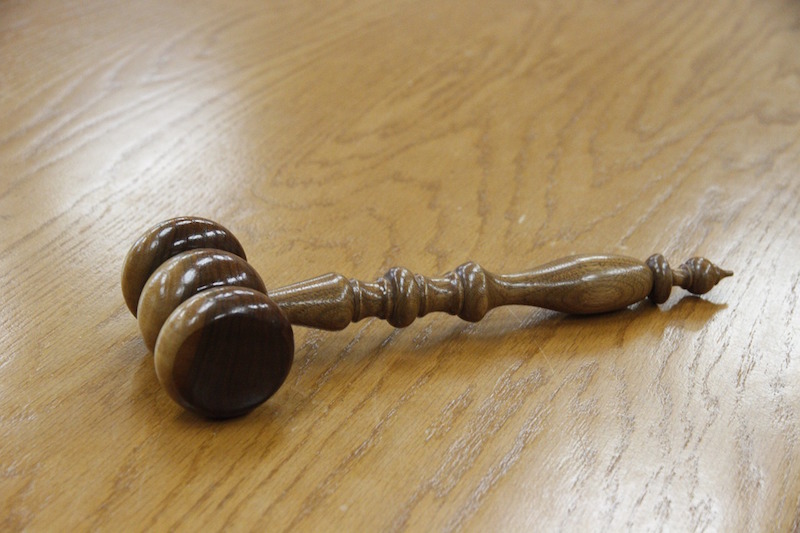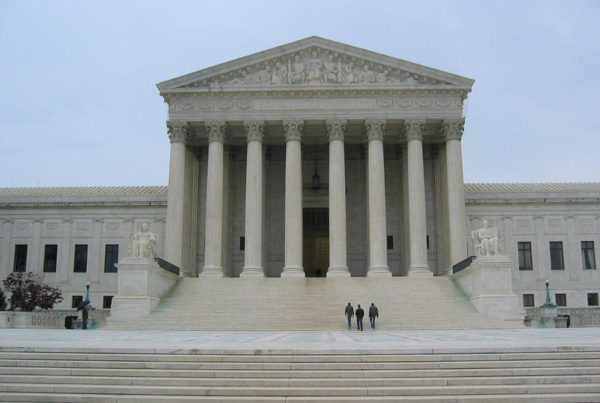A federal judge in Austin has blocked enforcement of a Texas law that restricts how and when large social media platforms can remove or moderate content posted by their users. Gov. Greg Abbott signed the law in September. It was sponsored by Republican lawmakers who believe sites like Facebook are censoring conservative viewpoints by blocking certain users or removing their posts.
Judge Robert Pitman’s ruling cited the social platforms’ First Amendment right to curate content “to convey a message about the type of community the platform seeks to foster.”
Thomas Leatherbury is director of the First Amendment Clinic at Southern Methodist University Dedman School of Law. The SMU clinic filed an amicus brief in the case, siding with the social media platform companies, along with the Electronic Frontier Foundation.
Listen to the interview above or read the transcript below.
This transcript has been edited lightly for clarity:
Texas Standard: What exactly would the Texas law require social media platforms to do, or not to do, when it comes to user-generated content?
Thomas Leatherbury: There were two aspects of the law that the judge particularly cued in on to declare it unconstitutional. The first was the burdensome disclosure and operational requirements that imposed all sorts of reporting requirements on the largest social media platforms. The second was the portion that forbade social media platforms to block, or otherwise censor content, based on viewpoint and that allowed for actions by private citizens and enforcement by the attorney general of even potential violations of the law.
It’s my understanding that Facebook and Twitter, which were represented in the suit by industry associations, block and moderate content that spreads disinformation or advocates violence and material that’s dangerous to children. Is that right?
And they always have. And they have that right under the First Amendment to exercise their editorial discretion, to create the type of community, and to block or deplatform the types of information or the types of speakers that violate their community standards. So the law would have required them not to block, or require them to speak, by carrying content that they found objectionable under their community standards.
Is it surprising to you that Judge Pitman rejected the Texas law?
No, it wasn’t a surprise at all. Ever since the law was passed, some of us have been speaking out against it. And there’s good reason too, because a similar law that wasn’t even as onerous as the Texas law, was found unconstitutional in Florida already. And so, Judge Pitman cited that Florida case several times in reaching his decision to find that the Texas law was unconstitutional. So absolutely no surprise, rock-solid reasoning.
On the other side, though, there’s the argument that these platforms – although they’re technically private – have become, in fact, public forums. And shutting down someone effectively denies them the ability to speak.
Yes, but they are still private companies, and Judge Pitman and the Florida judge found no difficulty in rejecting the false reasoning that they have become common carriers. They’re not railroads, they’re not public. Utilities are not telephone companies, they’re not broadband providers. As Judge Pitman put it, they’re not mere indiscriminate conduits. They’ve always exercised the right to moderate the content to create the type of community they want to create. And there are multiple communities out there that people who feel like they have been blocked or censored on the largest platforms can go to and express their message.
Assuming the state appeals this decision, what are the chances this might wind its way to the Supreme Court?
You know it might. I don’t read those tea leaves all that often, but the Florida case is ahead of us. It’s on appeal to the 11th Circuit Court of Appeals in Atlanta. So we may have another appellate decision before the 5th Circuit gets to weigh in on it. The pity is that the state is wasting our tax money in defending clearly unconstitutional laws. And since the plaintiffs were successful in this case thus far, if they remain successful, they can collect their attorney’s fees from the state. Totally unnecessary, wasteful expenditure of state money.












